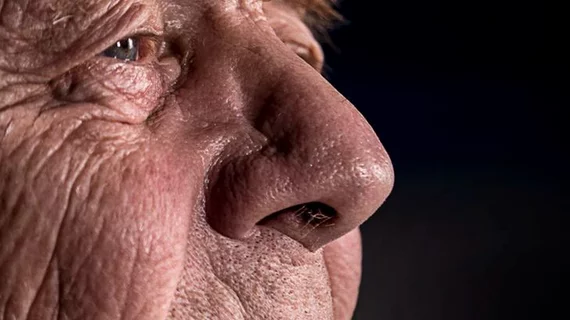Whole-body PET/CT ferrets out metastases traveling from sinonasal cancers
Whole-body PET/CT with the standard radiotracer 18F-FDG is a dependable screening tool for catching many metastases, distant as well as regional lymphatic, according to researchers at the University of Minnesota.
Reporting their findings in a study published online March 12 in the American Journal of Roentgenology, senior author Zuzan Cayci, MD, and colleagues described their work testing the technology on the relatively rare cancers that originate in the sinuses and nasal cavities.
Cayci and team reviewed the cases of 89 consecutive patients who had newly diagnosed sinonasal malignant lesions and underwent whole-body FDG PET/CT over a nine-year period ending in 2017.
Checking the radiological findings against confirmed histopathologic results or clinical follow-up with additional imaging, they found most metastases showed up on FDG PET/CT at initial staging.
Distant metastases were detected with high sensitivity, specificity, accuracy and negative predictive value, with overall scores ranging from 81 percent to 99 percent.
Most of the distant finds were located in the lung at screening, but the FDG PET/CT also turned up traveling cancers in the liver, bone, brain and spine.
Meanwhile regional lymphatic metastases were found in 20 percent of patients, with a high accuracy of 93 percent, “suggesting a role for whole-body FDG PET/CT scan in the initial management of sinonasal malignancies,” the authors reported.
Importantly, the whole-body scans led to a change in the treatment of all patients in whom metastasis was found.
The results of the study “support the use of whole-body FDG PET/CT as part of the routine pretreatment evaluation of metastatic workup,” the authors added.
Cayci and colleagues stated their investigation is the largest so far to evaluate whole-body FDG PET/CT for detecting distant metastasis and regional lymphatic metastasis in patients with sinonasal malignancies.

